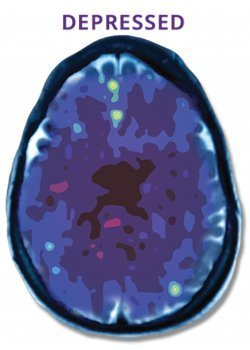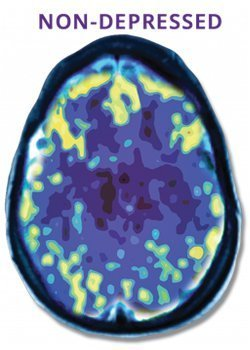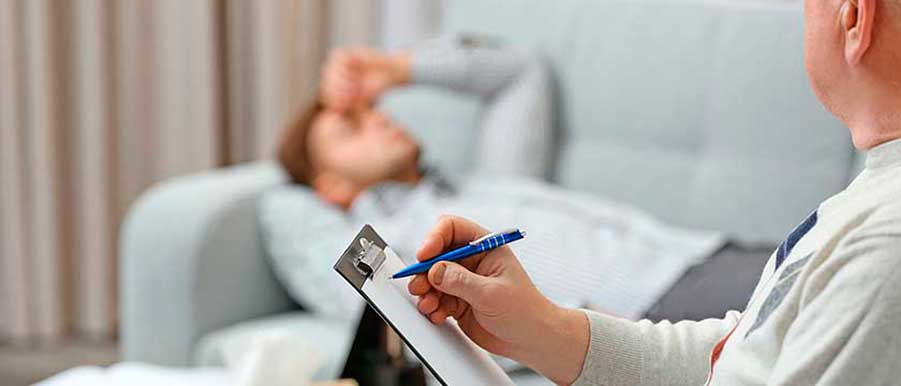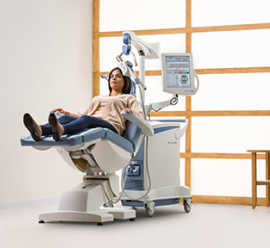-
CALL US NOW 833-TMS-5088
Depression is an illness that affects approximately 16.1 Million Americans. It has a negative change on how a person behaves, thinks and causes sadness. While medication successfully treats many patients, an approximately 4 million report that Anti-Depressant medication doesn’t cure them.
The exact cause of depression is still not known but it’s generally accepted by scientists that it is caused by an imbalance of the brain’s neurotransmitters, which are chemical messengers that send signals between brain cells. For these patients, the effects of depression can still be deeply damaging. These patients need a proven, safe depression treatment option. While treatment by Anti-Depressant medicine has been helpful for many patients, but for many others it hasn’t been satisfactory. These patients suffer from the damaging effects of depression and they need a proven, safe depression treatment.



Depression can treated by Drug and without Drugs. In most cases, Depression in first attempt to treat is with psychotherapy (Non Medicinal) combined with antidepressant medication. Although antidepressants can be effective for some patients, they do not work for everyone. Also, there can often be unwanted side effects from antidepressant drugs.
When first-line antidepressant drugs fail, other depression treatment options may be considered as below:

TMS Therapy for Depression is widely reimbursed by most commercial and government health plans, including Medicare and Tricare.
When Anti-Depressant medicines fail to treat the patients and they are uncomfortable with side effects, then alternate medical device are used. One of these treatments is Transcranial Magnetic Stimulation (TMS). The 2010 Practice Guidelines for the Treatment of Patients with Major Depression cites TMS as an appropriate treatment option for patients who have not benefited from initial antidepressant medication.
TMS uses short pulses of a magnetic field to stimulate nerve cells in the area of the brain thought to control mood. The pulsed magnetic field may have a positive effect on the brain’s neurotransmitter levels. Treating depression with TMS Therapy ® provides a breakthrough depression treatment for those who have not been satisfied with the results they have had with antidepressant drugs.


TMS uses transcranial magnetic stimulation (TMS) to target key areas of the brain that are underactive in people with depression.
During a TMS treatment session, a magnet with same strength as that used in a magnetic resonance imaging (MRI) machine is used to stimulate nerve cells in the area of the brain thought to control mood. These magnetic pulses may have a positive effect on the brain’s neurotransmitter levels, making long-term remission possible.
With more than 3 million treatments performed, this novel treatment approach to achieving remission is a fast growing choice of treatment.


TMS Advanced therapy for Depression makes long-term remission possible—which is why it’s the #1 choice of doctors.

TMS uses a targeted pulsed magnetic field, similar to what is used in an MRI. While the patient is awake & alert, it stimulates underactive areas of brain.

Clinical studies with over 900 people have shown that TMS Advanced Therapy may help achieve remission for people living with depression.
If you agree with two or more of these statements, TMS Advanced Therapy may be right for you.
Depression symptoms have upset my daily life.
For people with depression who have not benefited from antidepressant medication, TMS Therapy can offer hope—use the locator to find a doctor with Advanced Therapy.
Talk to a physician to learn more about how this proven alternative depression treatment has helped other people with their depression, and whether it may help you or your loved one.


TMS Therapy for Depression is widely reimbursed by most commercial and government health plans, including Medicare and Tricare.